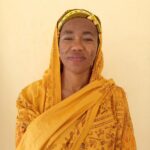The Cameroonian diaspora which, according to the Electoral Code, designates “Cameroonian citizens settled or residing abroad” did not have voting rights until 2011. After fierce demands, this right was granted and recognized by Law No. 2011/013 of 13 July 2011. This recognition led to the amendment of certain provisions of the Electoral Code in order to specify the procedures for participation of Cameroonians abroad in presidential and referendum elections in their country of residence abroad. Under Article 271 of the Electoral Code, “Cameroonian citizens settled or residing abroad shall exercise their right to vote by participating in the election of the President of the Republic and in the referendums” . Thus, Cameroonians abroad are only entitled to participate in two elections: the presidential election and the referendums. The right to vote of Cameroonians abroad is only recognized to Cameroonians who have kept exclusively Cameroonian nationality and have not acquired another nationality. Therefore, Cameroonians with dual nationality are not allowed to register on the electoral rolls. It should be noted that this restriction also applies to those residing on the national territory. Another restriction concerns the possession of a consular card to register on the electoral rolls. In addition to these two restrictions, the conditions for participation in the electoral process are marred by numerous challenges, the process is marked by numerous irregularities and presents profound dysfunctions. Since the last two presidential elections in 2011 and 2018, the regulatory system for the electoral process has not been improved. But, beyond all these limitations, voices have been raised since 2018 to call for political change, and more precisely for a regulation of the electoral process favorable to alternation. In the aftermath of the 2018 presidential election, a socio-political movement for change and alternation in Cameroon called the Brigade Anti-Sardinards (BAS) was formed, deploying strategies of resistance to government in Yaoundé that Azirilou Ndam Nsangou describes as the “diasporalization” of the revolt . However, it would be an illusion to think that the diaspora forms a homogeneous bloc aspiring to change and political alternation.
The diaspora is a constellation of political actors with diverse aspirations, grouped into two categories: those who support the current regime in a logic of continuity, and those who are opposed to the regime and campaign for political change. With a small, divided and fragmented electorate, will the proponents of change be able to change the current trends that have the ruling party winning the 2025 presidential election?
- The divisionwithin the diaspora: supporters and opponents of the regime
The Cameroonian diaspora is divided between supporters of the current regime who are committed to a logic of continuity and opponents of the regime who call for change. However, their number is extremely low: 30,000 voters (28,236 registered as of May 8, 2025) out of a total of nearly 8,000,000 voters, or 0.35% of voters. Given the malfunctions and allegations of marginalization in voter registration, it can be assumed that the majority of those registered are those who, a priori, support the regime. This division within the diaspora is skillfully exploited by political actors and mainly by the current regime, which is multiplying stategies to keep the reins of power. The 2025 presidential election within the diaspora is therefore being prepared amid accusations from the BAS and its sympathizers and the mobilization of the die-hard supporters of the ruling party.
- The mobilization of regime supporters for continuity
The incessant calls for Paul Biya to run for another term as Head of State raise many questions and concerns when we consider the socio-economic situation of the country in reality. However, there is a significant dilemma between the legitimate democratic aspirations for change through the ballot box, resulting in a change of government and a change in the political majority, and the political pragmatism nurtured and fueled by a class of political leaders who do not propose a relevant strategy for change. Political pragmatism here, in the sense used by Nicholas Machiavelli, is based on realism. In the current configuration of the Cameroonian political scene, no opposition leader enjoys unanimous support among the other leaders, and the facts reveal citizens deeply divided by ethnic and clientelist considerations. The Cameroonian political field abroad since the 2011 presidential election has evolved according to rivalries between political parties. Despite the disaffection of many voters and the low number of registered voters, political parties are deploying abroad to win over the diaspora electorate. The Cameroon People’s Democratic Movement (CPDM), the ruling party, is much more strongly represented abroad than other parties and is actively involved in mobilizing its activists abroad. The political behavior of CPDM activists in foreign representations reflects the national political game based on strong mobilization and strategies of fighting for victory. These CPDM activists are committed to the continuity of the current regime and are mobilizing for the victory of their candidate in the 2025 presidential election.
- The struggle of BAS and Cameroonian activists abroad for political change and alternation
Since 2018, “a protest mobilization against the exactions of the Biya regime“of a rare violence has formed within the Cameroonian diaspora: the Brigade Anti-Sardinards. At the opposite end of the spectrum from those who support the regime are the supporters of the Brigade Anti-Sardinards (BAS), “the association that brings together Paul Biya’s most implacable opponents“ who go so far as to mobilize violence to show their determination to obtain change and to bring about alternation by all means necessary. Without returning to the methods of this movement, which are moreover questionable, the emphasis is placed on the expression of a fed-up feeling and an aspiration for change. However, it should be noted that not all political change is necessarily alternation. Alternation is certainly a form of political change, but it is not obtained through violence, but through the ballot box. Alternation is indeed a democratic and peaceful form of political change, hence the importance of opening participation in elections to all actors who aspire to political change through alternation. In this regard, the diaspora has continued since 2011 to denounce the dysfunctions linked to the electoral process that limit the participation of the diaspora electorate in elections: selective registration, restrictive conditionalities, maneuvers to exclude opponents of the regime from the electoral process. No improvement has been observed or recorded since the 2011 presidential election. The number of voters abroad is still abnormally low, even for this presidential election of 2025, 14 years later. After 40 years of reign, the record of the regime in power is not very bright, and voices are being raised in the diaspora in favor of an alternation at the head of the executive.
II- The difficult consensus between citizens and the low electoral weight of the diaspora
The Cameroonian diaspora, estimated at over two million people spread mainly across Europe, North America and Central Africa, is a socio-economic actor for Cameroon. Politically, however, its role remains relatively weak, mainly due to a lack of consensus among diaspora citizens and their low electoral weight.
A– The absence of consensus and concerted strategy between political actors in the diaspora
The division among citizens of the diaspora mirrors the division among political leaders within the nation. A fragmented opposition faces a strong and fortified power, which struggles to speak with one voice. Opposition leaders do not seem ready to make the compromises necessary for change which substantially means a change of majority in the instances of power (parliament and presidency). How to shift the majority from one political party to another or from one coalition of parties to another coalition of parties? Desiring political change is one thing, desiring political alternation is another. In fact, making political alternation a political objective means working to build and constitute an opposition capable of winning an election with a clear and indisputable majority. The political behavior of the diaspora reflects the rivalries between political parties on the national scene. The difficulty opposition leaders are having in forming a coalition for a single candidate in the 2025 presidential election is dividing and separating their supporters. Competition between political parties is forcing their supporters abroad into the same battles and confrontations as their supporters on the national scene. Disagreements between opposition candidates are creating discord among their supporters, and disaffection among activists is evident within the ranks of various opposition parties. Unfortunately, the shared desire for political change is not enough to create a consensus for collective mobilization strategies in favor of the desired or sought-after change.
B– The low electoral weight of the diaspora
There are barely 30,000 voters (28,236 registered as of May 8, 2025) from the diaspora to participate in the 2025 presidential election. These voters’ votes will be divided among 12 candidates in the presidential election. In addition to its financial contributions through remittances which play an important role in the development of the country of origin, the diaspora also plays a growing role in the public debate. However, this role would have little impact if it were not able to vote and exert a significant influence on the outcome of the elections. What impact can they have in a single-round electoral system where the winner can win by a simple majority? In 2025, the diaspora’s participation in the presidential election is giving rise to various reflections and analyses. It should be noted that since the diaspora obtained the right to vote, two presidential elections have already been held: in 2011 and 2018. The 2025 election will be the third in which the diaspora is called upon to participate. Compared to the two presidential elections of 2011 and 2018, it recorded a very low participation rate: 24,372 registered for the 2011 presidential election, or less than 1% of the total diaspora and 19,420 in 2018 or 0.29% of registered voters. In 2025, there is a slight rise in the figures to 28,236 registered out of a total of 8,082,000 registered, or 0.35%. These figures reveal that the electoral participation of the Cameroonian diaspora remains marginal and its capacity to overturn the political majority is almost non-existent.
Conclusion and recommendations
The participation of the diaspora in the 2025 presidential election is part of a process of formalizing and consolidating the voting rights of Cameroonians abroad. However, the legal framework for this participation defined in Part X of the Electoral Code is quite restrictive, and to a certain extent demotivating for potential voters. This law is a kind of double-edged sword that highlights the thorny problem of registering or enrolling foreigners with the diplomatic representations of their country of origin. Unknown to many Cameroonians abroad, this document required for registration on the electoral lists has excluded several nationals from the process of registration on the electoral lists. At the same time, many Cameroonians denounce the administrative burdens in obtaining Cameroonian consular services abroad. The law also brings the issue of dual nationality in Cameroon back to the heart of the political debate. Cameroonian authorities continue to refuse to recognize Cameroonian citizenship to those Cameroonian nationals who have signed to obtain another nationality: dura lex, sed lex. As the law is still in force, they cannot register to vote ; they can, however, financially support candidates and participate in their election campaigns. Given the current state of the regulations in force and given the upcoming deadline, we recommend:
— To the government, the facilitation and simplification of procedures for obtaining the consular card;
— At ELECAM, transparency in the process of creating local voting commissions within diplomatic representations; that all diplomatic representations have offices and that these local voting commissions abroad are composed in an inclusive manner;
— to all Cameroonians abroad, that they comply by obtaining a consular card for the upcoming elections.





































